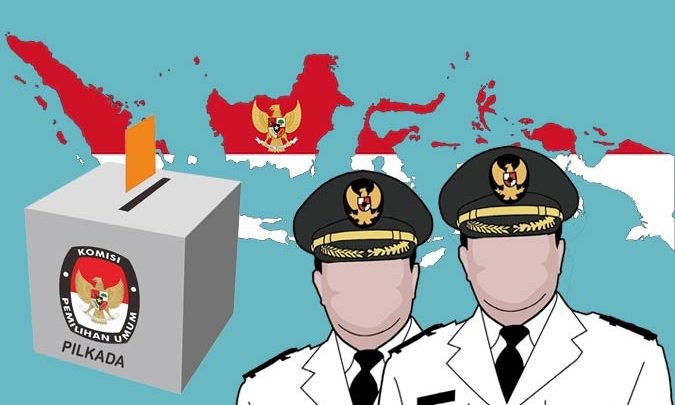Active Participation of New Voters Makes 2024 Regional Elections a Success
By: Robert Siahaan
The 2024 Simultaneous Regional Elections are one of the important moments in Indonesia’s democratic journey. In this context, the role of new voters is increasingly crucial. Those who are exercising their right to vote for the first time in an election have great potential to influence the election results. With a significant number, the active participation of new voters in the 2024 Regional Elections can be a key factor in determining the future of the region and the nation.
First-time voters, who are mostly young people, are a group that is in the process of forming their political views. They are usually between the ages of 17 and 21 and have just gained their political rights.
According to the latest data, in the 2024 regional elections, new voters are estimated to reach millions of people, making them one of the largest and most influential voter segments.
Their role is vital because the younger generation often brings new energy, a spirit of change, and fresh ideas to the dynamics of politics. With wide access to information through technology and social media, first-time voters have the opportunity to engage more deeply in the political process. They can be more critical in assessing prospective leaders, work programs, and the visions and missions offered.
Despite its great potential, increasing the participation of first-time voters is not without challenges. One of the main challenges is their lack of understanding of the political system and the importance of participating in elections.
For some first-time voters, politics is often considered complicated or irrelevant to their daily lives, so interest in getting involved in the election process tends to be low.
In addition, confusion in choosing the right candidate is also an obstacle for first-time voters. Many of them find it difficult to make a choice amidst the flood of information they receive, especially from social media which often presents biased or even invalid content. The issue of disinformation and hoaxes is also a challenge in itself that can confuse young voters in assessing regional head candidates objectively.
To overcome this challenge, massive and targeted political education efforts are needed for first-time voters. Political education is not only about how to exercise the right to vote, but also involves an in-depth introduction to the democratic process, the role of voters in determining public policy, and the importance of electing leaders with integrity and a clear vision.
Socialization regarding the importance of political participation must be carried out from an early age, both through formal channels such as schools and non-formal channels such as community activities and youth organizations.
In this digital era, social media platforms can also be used as an effective tool to raise political awareness among first-time voters. Through creative campaigns involving influencers or young figures, a simpler and more interesting understanding of politics can be conveyed to the younger generation.
Younger generations are the primary users of digital technology, especially social media. First-time voters are generally more likely to connect with information via the internet, compared to traditional media such as television or radio.
This opens up opportunities to utilize digital platforms as a means to disseminate more transparent and credible political information.
However, it should be remembered that the use of technology must also be balanced with control over disinformation. Digital literacy education must be improved, so that new voters can filter the information they receive and are not easily influenced by fake news circulating.
The Head of the Communication and Informatics Service (Diskominfo) of Central Java Province, Riena Retraningrum, confirmed that her party had taken a number of strategic steps by forming officers to ensure that the regional democratic party runs safely.
Meanwhile, the Coordinating Minister for Political, Legal and Security Affairs (Menko Polhukam), Air Marshal TNI (ret.) Hadi Tjahjanto revealed that his party had carried out a safari to check and prepare for the 2024 Simultaneous Regional Elections.
On the other hand, Bandung City DPRD, H. Agus Andi Setyawan fully supports the various steps aimed at targeting the level of concern for new voters so as to give rise to their initiatives.
Ultimately, first-time voters are not only a group that must be encouraged to get involved in the 2024 Pilkada, but also recognized as agents of change. By providing a strong understanding of their responsibilities as citizens and the importance of participation in elections, first-time voters can become a driving force for change at the local and national levels.
Their active participation in the 2024 Pilkada will not only strengthen the legitimacy of democracy, but also help encourage the birth of new leaders who are more responsive to the needs of the community, especially the younger generation.
Their voices are a reflection of the future, and the more they are involved, the greater the opportunity for Indonesia to advance as a democratic, inclusive and progressive country.
Therefore, the role of new voters in the 2024 Pilkada is very important. They are not just participants, but also determiners of the future direction of the nation. With their active involvement, the 2024 Pilkada has the potential to become a more qualified democratic party and lead Indonesia in a better direction.
*) Political Observer, Mercubuana University
